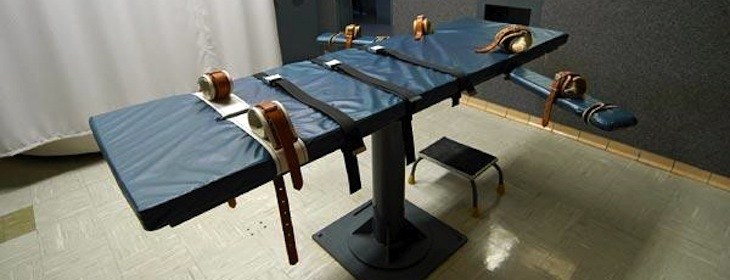Drug distributor seeks to block use of a drug needed for planned Arkansas executions
by April 18, 2017 5:01 pm 440 views

McKesson Medical-Surgical has filed a lawsuit in Pulaski County Circuit Court alleging that Arkansas officials improperly acquired drugs from the company, planned to use them in executions and failed to return the drugs when the state was refunded its money.
The suit, if successful, would likely result in postponing the remaining five executions Arkansas officials plan to carry out by April 27.
Gov. Asa Hutchinson on March 6 set execution dates over an 11-day period starting April 17 and ending April 27. • April 17: Don Davis, Bruce Ward; • April 20: Stacey Johnson, Ledelle Lee; • April 24: Marcel Williams, Jack Jones; and • April 27: Jason McGehee, Kenneth Williams.
However, legal challenges, including an almost last minute decision by the U.S. Supreme Court, resulted in a stay of execution for Davis. Courts have already granted requests to stay or delay the executions of McGehee and Ward.
McKesson argues it will suffer “grave reputational harm” if its vecuronium bromide now in the state’s possession is used to execute inmates. McKesson does not make the drug, but distributes it for a drug maker. The drug maker does not allow McKesson to sell its drugs to state or federal operations to be used in executions.
“McKesson seeks a temporary restraining order, a preliminary injunction and a permanent injunction because absent same, McKesson will suffer irreparable harm and McKesson lacks an adequate remedy at law to compensate McKesson for ADC’s conduct in obtaining Vecuronium and using it for something other than a medically legitimate purpose,” noted the filing by Little Rock attorney Steven Quattlebaum on behalf of McKesson.
McKesson’s claim is similar to that of drug makers Fresenius Kabi and West-Ward, who joined a federal lawsuit heard last week by U.S. District Court Judge Kristine Baker. The filing includes images of two redacted product labels the drug makers allege accompany their drugs and are in the state’s possession for use in the injections. Baker ruled to stay the executions, but her ruling was overturned by the U.S. 8th Circuit Court of Appeals.
In Tuesday’s (April 18) filing, McKesson said their request does not financially harm the Arkansas Department of Corrections (ADC) and does not prohibit the executions as long as other drugs can be found.
“ADC bears no corresponding risk. A temporary restraining order and injunction here would not bar ADC’s efforts to administer capital punishment. ADC can find other means to complete these executions. Further, ADC’s interest bears no urgency. It has taken ADC decades to schedule the inmates for capital punishment, and ADC has not conducted an execution since 2005,” noted McKesson’s filing. “It can wait longer to identify a method to administer capital punishment without using diverted products in a manner contrary to the medical license. Finally, Defendants’ financial burdens will not be increased as a result of this litigation, as McKesson only seeks injunctive relief from the imminent and irreparable harm threatened by Defendants’ conduct.”
McKesson also alleges that when the company learned the vecuronium bromide was being used by ADC for executions and not for “legitimate medical purposes,” it requested return of the shipments on July 21, 2016. On July 27, McKesson refunded the state its money. On Aug. 3, a state official said ADC Director Wendy Kelley decided to not return the drugs to McKesson.
“After refunding ADC’s purchase by issuing a credit, ADC retained McKesson’s product, contrary to the fundamental principles of justice, equity, and good conscience. ADC’s acceptance of the benefit without payment to McKesson for it (sic) full value, despite the promise to return the Vecuronium, is inequitable under the circumstances,” noted Mckesson’s filing.
Attorney General Leslie Rutledge did not comment on the allegations outlined in McKesson’s filing, but she did request the case be moved to the Faulkner County Circuit Court. According to Rutledge’s request, state law allows a change of venue if a plaintiff is not a resident of the state, which McKesson is not.
